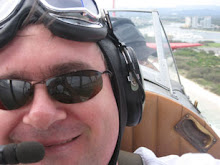Just following on from the last post which mentioned an article from The Register noting the use of camera and video phones by passers by during the London Terror Attacks. In it there was a quote from a blogger named Justin who mentioned the people jostling for position to get the most gruesome pictures near the triage area as survivors were being led out of the train tunnels.
Following up from that is an interesting piece from the Online Journalism Review regarding this ongoing trend.
"Like the tsunami disaster in Southeast Asia, the first reports came from people at the scene who had videocameras. In this case, the cameras were smaller and built into phones. But despite the day being a major breakthrough for citizen media... it also brought out the worst in some bystanders...
That naked impulse to tell a disaster story, glaring kleig lights and all, was once the province of mainstream and tabloid news organizations. But no longer. Now, for better and worse, our fellow citizens stand by, cameraphones in pockets, ready to photograph us in our direst times. Xeni Jardin, a freelance technology journalist and co-editor of BoingBoing, was aghast at the behavior of the citizen paparazzi at the scene described by Justin.
Jardin compared the behavior to the paparazzi that chased Princess Diana before her fatal car crash and noted that the ethical issues raised then are now applicable beyond just professional photographers.
'These are ethical issues that we once thought only applied to a certain class of people who had adopted the role of news as a profession,' Jardin said. 'Now that more of us have the ability to capture and disseminate evidence or documentation of history as a matter of course, as a matter of our daily lives -- as a casual gesture that takes very little time, no money, not a lot of skill -- those ethical issues become considerations for all of us.' "
During research for an assignment last year I came across this article that proffered an argument that the proliferation of capturing devices such as camera phones would assist us to cross reference, taking away the power of the digital image to be easily manipulated. That's all well and fine, and it's important that people are there to document the things in this world that we don't necessarily want to see, but that's no excuse for people "rubbernecking" at a disaster scene, no matter how many intermediary devices they hold in their hand. Do you think that it's a fair call to assume that when a person has some piece of technology that they're using to capture an event it creates a sense of distance from the event itself? That worrying about getting the framing, the exposure, the moment right helps detract from the sense of participation, and therefore any emotional response?
Forget virtual reality and high-presence environments. People don't even want to live in this world so why would they want to live in a perfectly replicated one? Just draw it as a cartoon, where people live life as an animal and can bounce off of rocks, get hit by cars, or even be blown up, only to bounce back and keep going in the next scene. Wile E Coyote may be stupid, but at least he didn't have to worry about the Road Runner stopping to take pictures.
Did London bombings turn citizen journalists into citizen paparazzi? - Online Journalism Review
Too many early mornings. I need sleep.
Subscribe to:
Post Comments (Atom)

No comments:
Post a Comment